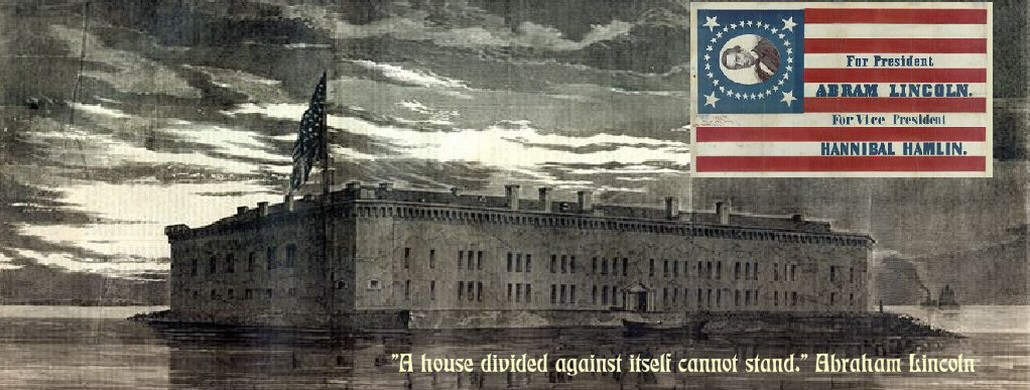
[America, around 1860] A large country had come into being, but it was not a homogeneous one. Harvey Bergmann, the political journalist, observed these developments with great concern.
The “house divided”
In the North, farmers cultivated their own small estates and with agricultural workers, here manufacturing and industry flourished, also thanks to the many immigrants. Slavery was abolished. The industrialized states in the North, however, demanded tariffs to protect their products against imports of mass products from England. In the South, a few gentlemen owned gigantic plantations, on which hundreds of slaves worked. In the warm, humid climate especially cotton flourished.
The tensions came to a head when the booming textile industry in Europe demanded more and more cotton, now “King Cotton” brought the plantation owners great wealth. To maintain current conditions, the South demanded free trade and no interference with slavery. The Missouri Compromise of 1820 allowed slave holding south not north of the parallel 36°30′. But what rule would apply for new states that joined the Union?
Harvey Bergmann, the political journalist, watched these developments with concern. In the North, the abolitionist movement was gaining more weight. In 1852, Harriet Beecher Stowe’s novel “Uncle Tom’s Cabin’ was published, in which she decried slavery. One last time a compromise was found: the settlers of a new federal US states should decide. When 1854 Kansas and Nebraska came into the Union, both sides sent their followers to Kansas, and there were violent clashes. Kansas was not so far away.
One last happy time
He thought of his parents, both had been through a lot. Niklas had almost died as a young man on Napoleon’s Russian campaign, and Jenny’s first husband had been killed in the British-American War. How much did he wish them a happy and peaceful evening of life! Now that the Merry Dragon Inn was in good hands with Lorenz and Annelie, he persuaded them to travel. So they went up to New York and Boston, and down to Charleston in the South. Then Niklas, the boy from the Rhine, wanted to see the Mississippi. So they travelled from New Orleans to St. Louis, and from there through Virginia back home.
After their return, new plates and cups with new motifs came into being: Mississippi paddle wheel steamers, black Americans who sang gospel music and rascals who played on the shore. That was one last happy time for Harvey and his parents.
A few months later Jenny died. “At least she does not have to watch how her country falls apart,” Niklas said one evening to his brother Heinrich, “there is more and more talk of war.” “I was hoping that we’ll never have to go through that hell again, brother,” Heinrich said, “let us stand together like back then in Russia. You’ll come with me and live with my family in Virginia.”
An election rally with Carl Schurz (1860, America)
When the 1860 presidential elections came up, South Carolina went even further and demanded the right to secession, to leave the Union. Against that Abraham Lincoln spoke up, the candidate of the Republican Party that had been founded only 1860. The Union must prevail, he said, but in the new states, slavery should not be allowed. Carl Schurz wanted to serve his new homeland and had gone into politics. Abraham Lincoln impressed him greatly, as a politician who believed in the same things as himself, and also as a person. So he did his best to win the votes of the German-Americans for Lincoln.
At an election rally in Philadelphia also Heinrich, Niklas, and Lorenz were in the audience. Carl Schurz was a committed, rhetorically brilliant speaker. For him, slavery was a “shameful institution”(*) in his new country, and only if it was not only restricted to some states, but eradicated throughout the country forever, the United States could find peace in the long term.
Thereby he said what Heinrich and Niklas were thinking. During their youth at home in the Grand Duchy of Berg, many people had been serfs whose lives had been determined by their masters’ will.
* Quoted from Rudolf Geiger: Der deutsche Amerikaner, page 143, “schändliche Einrichtung” in German.

Be the first to comment